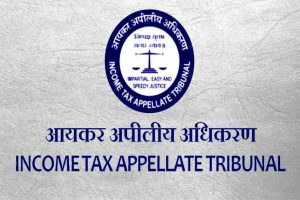Income Tax Appellate Tribunal (ITAT), New Delhi: An appeal was filed by the assessee against the order of CIT(A)-21, New Delhi dated 21-01-2019 before the bench comprising of Sh. A. D. Jain (Vice-President) and Dr. B. R. R. Kumar (Accountant Member).
The assessment was completed under Section 143(3) of the Act on 03-03-2016 at taxable income of Rs.66,88,240/- inter alia making an addition of Rs.3,73,800/-. Assessee claimed to have paid rent to his wife Mrs. Shivani Mittal during the period September 2012 to March 2013 totaling to a sum of Rs.5,34,000/-. Property worth Rs.1.15.Crore was claimed to be purchased by assesssee’s wife for which amount of Rs.87.50 lacs were funded by the assessee himself and remaining amount was claimed to have been invested out of her own sources i.e. maturity of FD amounting to Rs.33.25 lacs.
Assessee’s wife had no independent source of income. Rental income, earned by her was liable to be clubbed in the hands of the assessee since it proved investment without having any independent source of income. Accordingly Assessing Officer clubbed the rental income of Rs.5,34,000/- after allowing deduction u/s 24A @ 30% (Rs.1,60,200/-) in the hands of the assessee and addition of Rs.3,73,800/- was made in the hands of the assessee.
The CIT(A) confirmed the addition holding claim of the appellant that the investment has been made in the house property by his wife from her own independent resources was not acceptable. For the assessment year, 2001-02 and 2003-04, income from profession was Rs.57,400/- and Rs.1,48,900/- respectively. The CIT(A) further relied on the total taxable income shown in the ITR filed from the assessment year 2001-02 till A.Y 2012-13.
There was no substantial taxable income shown by appellant’s wife during the above assessment years. She had no substantial source of income through which she can make investment in her own capacity either in the property or in the mutual funds etc.
In view of the above, assessee’s wife who has low returned income but received loan from the assessee has repaid the loan from the redemption of mutual funds and liquidation of fixed deposits. There was no bar on the part of the assessee to extend loan from his known sources of income to his wife. Similarly, there was no bar on her to repay the loan from her own mutual funds and fixed deposits. The assessee has paid house rent and the recipient, the assessee’s wife has declared the same under the head “income from house property” in her returns which has been accepted by the revenue.
The house was registered in the name of Smt. Shivani Bansal. Assessee got meager income hence he cannot afford to purchase a house cannot be accepted as the sources for purchase of the house in the hands of Smt. Shivani Bansal were proved rather never doubted. The CIT(A)’s contention that the husband cannot pay rent to the wife was devoid of any legal implication supporting any such contention.
The appeal of the assessee was allowed.[Abhay Kumar Mittal v. DCIT, 2022 SCC OnLine ITAT 96, decided on 08-02-2022]
Assessee by : Mr Rajesh Mahana
Revenue by : Mr Sanjay Kumar

